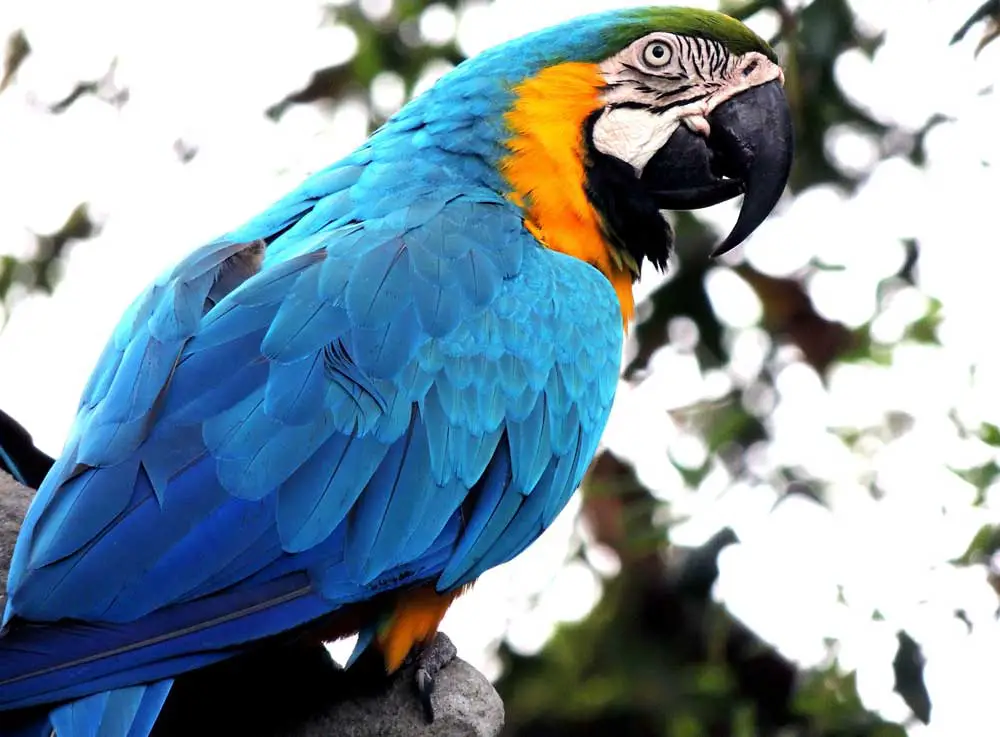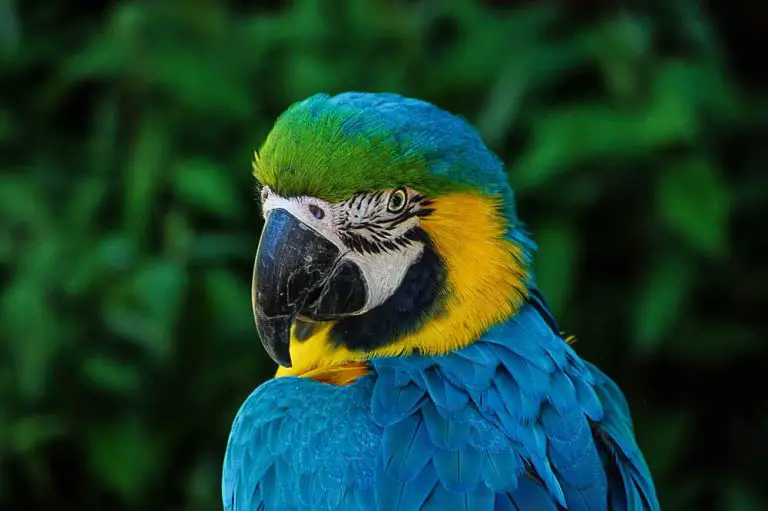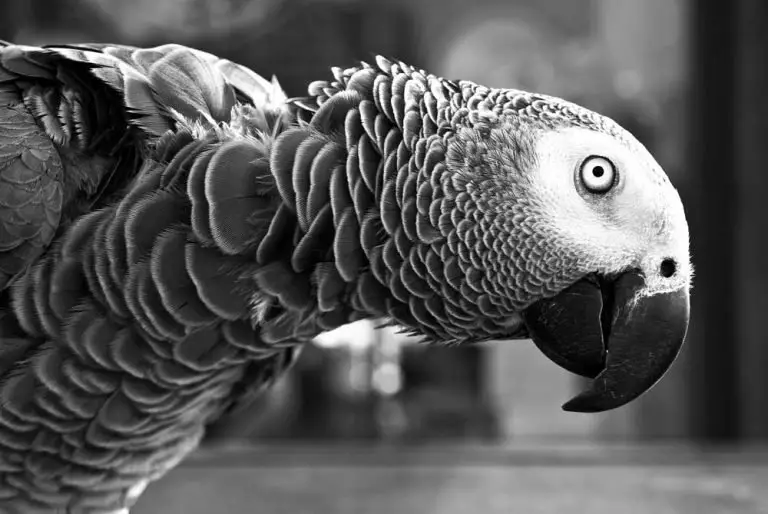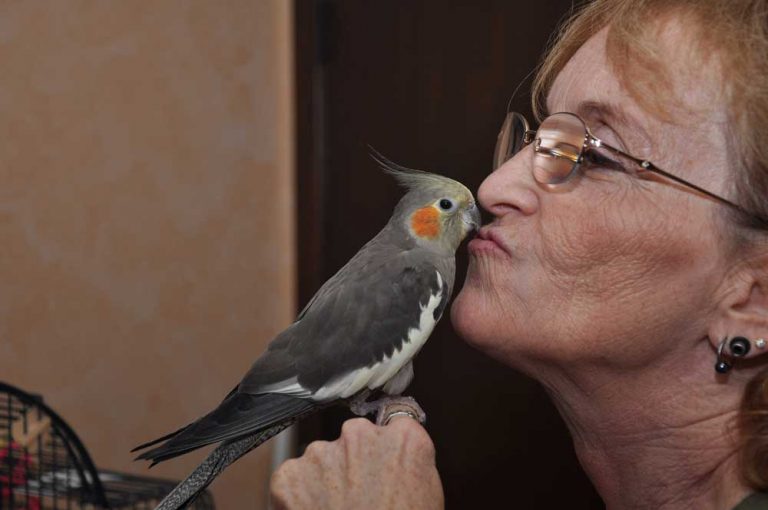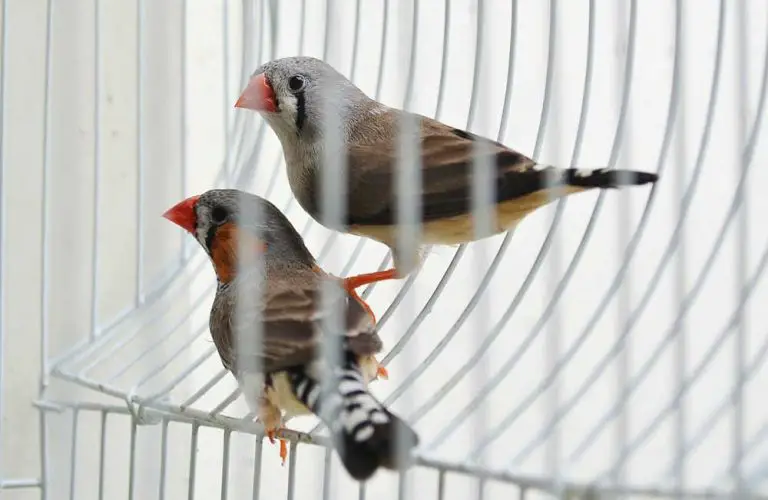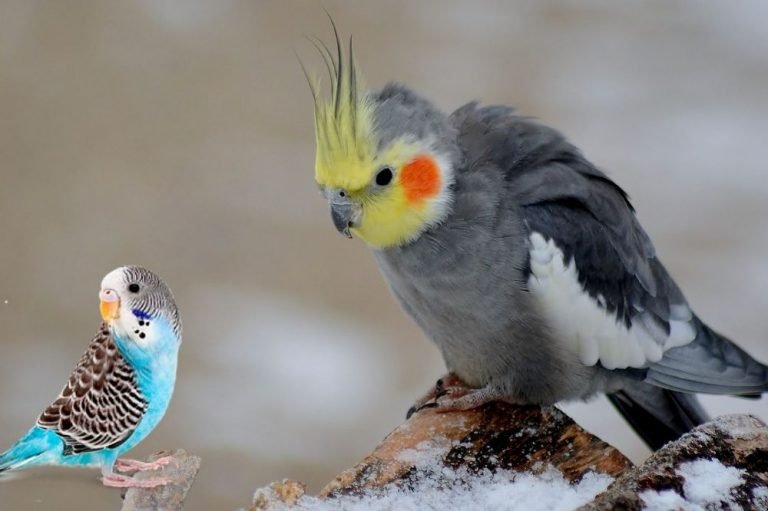Do Parrots Love Music?
Have you ever wondered if your pet parrot enjoys music as much as you do? Do they tap their feet or bob their head to the rhythm of your favorite songs? Well, the good news is that several studies show that parrots indeed love music and have different preferences regarding the songs played.
In this blog, we will explore the science behind why parrots enjoy music and how it can be used to enrich their lives. We will also discuss whether parrots have musical preferences and how music influences their behavior. Furthermore, we will provide tips on using music for parrot enrichment and training.
Lastly, we will answer the question of whether there is any type of music that parrots don’t enjoy. So sit back, grab a cup of coffee, and let’s discover together if your feathered friend is a fan of music!
The Science Behind Parrots Liking Music
Parrots, with brain pathways similar to humans, may have an innate musical ability, as per neuroscientists. Research indicates their capacity to synchronize movements to music and appreciate different tunes, suggesting a brain structure supporting musical appreciation. Like humans, parrots also demonstrate preferences for various melodies.
The Natural Rhythm of Parrots
Parrots display an impressive natural rhythm by dancing to music with a strong beat, mimicking human vocalizations, and even imitating dance moves. Famous cases like Snowball and the gray parrot, Alex, have showcased this ability. Parrots, similar to songbirds, are attracted to the tempo of music and have a natural inclination towards creativity, as seen in their ability to engage in the unique behavior of parrots dance.
Cognitive Abilities of Parrots
Parrots utilize their cognitive abilities to imitate human speech while also recalling and favoring specific melodies. African grey parrots, for example, exhibit remarkable vocal mimicry of various tunes, and parrots like Snowball showcase cognitive abilities by dancing to music. These musical preferences illustrate the cognitive skills of our feathered friends.
Do Parrots Have Musical Preferences?
Parrots, like individuals, exhibit musical preferences. Different parrots may prefer different types of music, such as classical, pop, or electronic dance music. Their preferences for specific genres may vary based on the type of music. Parrots have unique tastes when it comes to enjoying music.
The Role of Frequencies and Tones
Parrots, like humans, can detect various frequencies and tones in music. The African gray parrot, Alex, showcased an understanding of different music frequencies and musical tastes. Studies indicate that parrots exhibit preferences for specific music tones, much like humans do. Additionally, parrots are sensitive to a wide range of music frequencies, showing their distinct musical inclinations.
Experimenting with Different Genres
Parrots’ musical preferences vary across genres, with potentially different reactions to rock versus pop music. African gray parrots have demonstrated distinct genre preferences. Owners conduct experiments to decipher parrot music tastes, observing responses to classical versus electronic dance tunes. Research suggests parrots may enjoy diverse music genres’ tunes.
The Influence of Music on Parrot Behavior
Music triggers unique dance moves in parrots, influenced by different genres. It stimulates mimicry of human words and dance, pivotal in shaping their social behavior. The influence of music is evident through the captivating dance moves, showcasing parrots’ responsiveness to the beat and rhythm.
The Dancing Phenomenon
Parrots, such as Snowball and Alex, captivate researchers with their innate ability to dance to music. This phenomenon fascinates scientists and highlights the social and cognitive abilities of these feathered friends. The dancing behavior of parrots has garnered attention from the neurosciences institute at San Diego and Harvard, supporting Patel’s theory on the influence of music on parrots’ behaviour.
What Triggers Singing in Parrots?
Parrots are known to sing or vocalize in response to music. Certain songs may even trigger them to mimic human speech. Researchers have studied the factors that trigger parrots to sing, and music has been identified as a key stimulus for their vocalization.
How to Use Music for Parrot Enrichment
Using music for parrot enrichment involves playing different types of music in the background to provide mental stimulation, promoting their cognitive and emotional well-being. Observing your parrot’s reactions, setting the right volume, and choosing the right duration are essential for effective enrichment.
Setting the Right Volume
When exposing parrots to music, consider the appropriate volume. Their sensitive hearing can be harmed by loud music, leading to stress. Instead, opt for soft, calming music such as Bach, which can positively affect their mood and behavior. Observe their reactions and adjust accordingly. Providing a variety of music types can keep them stimulated and entertained.
Choosing the Right Duration
When it comes to choosing the right duration of music for your parrot, understanding their behavior and preferences is crucial. Consider their species and personality to select the appropriate music type and volume. Experiment with different genres and durations to find what resonates best with your feathered friend. For instance, if your parrot seems to enjoy catchy Elvis tunes, try playing music from an oldies station for her to enjoy. Seeking guidance from a vet or avian behavior specialist can provide personalized advice for your parrot’s well-being.
Observing Your Parrot’s Reactions
While music is playing, observe your parrot’s body language. Take note if your parrot sings or dances along. Experiment with different music genres to see any preferences. Consider the volume and type of instruments, as some may be too loud. Keep in mind that every parrot reacts uniquely to music.
Training Your Parrot with Music
Using music as a positive reinforcement tool can aid in parrot training. Experiment with different genres such as classical music to see which has the most significant effect. Parrots may enjoy mimicking tunes they hear, providing mental stimulation and enrichment. However, be cautious of loud music and ensure a safe volume for your parrot’s ears. Incorporate music into their daily routine for best results.
Music as a Reward System
Parrots positively respond to music for mental stimulation and as a reward for positive behavior. Careful selection of music type and volume is crucial to prevent stress. Personal music preferences can enhance a parrot’s well-being, providing numerous physical and mental health benefits.
Incorporating Dance and Movement
Incorporating dance and movement into a parrot’s life offers mental stimulation and physical exercise. Safely introduce music to observe your parrot’s preferences. Create an interactive experience by observing and responding to your parrot’s reactions. Choose music that suits your parrot’s personality and encourages movement for a bonding experience.
The Importance of Consistency
When playing music for parrots, consistency is key to establishing a routine and reducing stress and anxiety. Parrots respond positively to calming music and can associate specific songs with positive experiences. It’s crucial to be mindful of the volume and type of music to avoid causing harm.
Is There Any Music That Parrots Don’t Enjoy?
While parrots generally enjoy music and can even learn to sing along, they may not appreciate extremely loud or high-pitched tunes. Additionally, individual parrots may have their own preferences for certain genres or artists. It’s crucial to observe your parrot’s behavior and adjust the music accordingly.
Conclusion
In conclusion, parrots have a natural inclination towards music. Their ability to mimic sounds and their cognitive abilities allow them to appreciate and enjoy different genres of music.
However, just like humans, parrots have their own preferences when it comes to frequencies and tones. It’s important to experiment with different genres and observe your parrot’s reactions to find out what they enjoy the most.
Music can also have a positive influence on parrot behavior. It can trigger singing and dancing, providing them with mental and physical stimulation. Incorporating music into their daily routine can also be used as a form of enrichment and training. However, it’s important to note that not all music may be enjoyable for parrots.
Loud or harsh music might be overwhelming for them. It’s essential to set the right volume and choose music that is calming and soothing for your parrot. In conclusion, music can be a powerful tool for parrot enrichment, training, and overall well-being. So, put on some tunes and watch your feathered friend groove to the rhythm!

